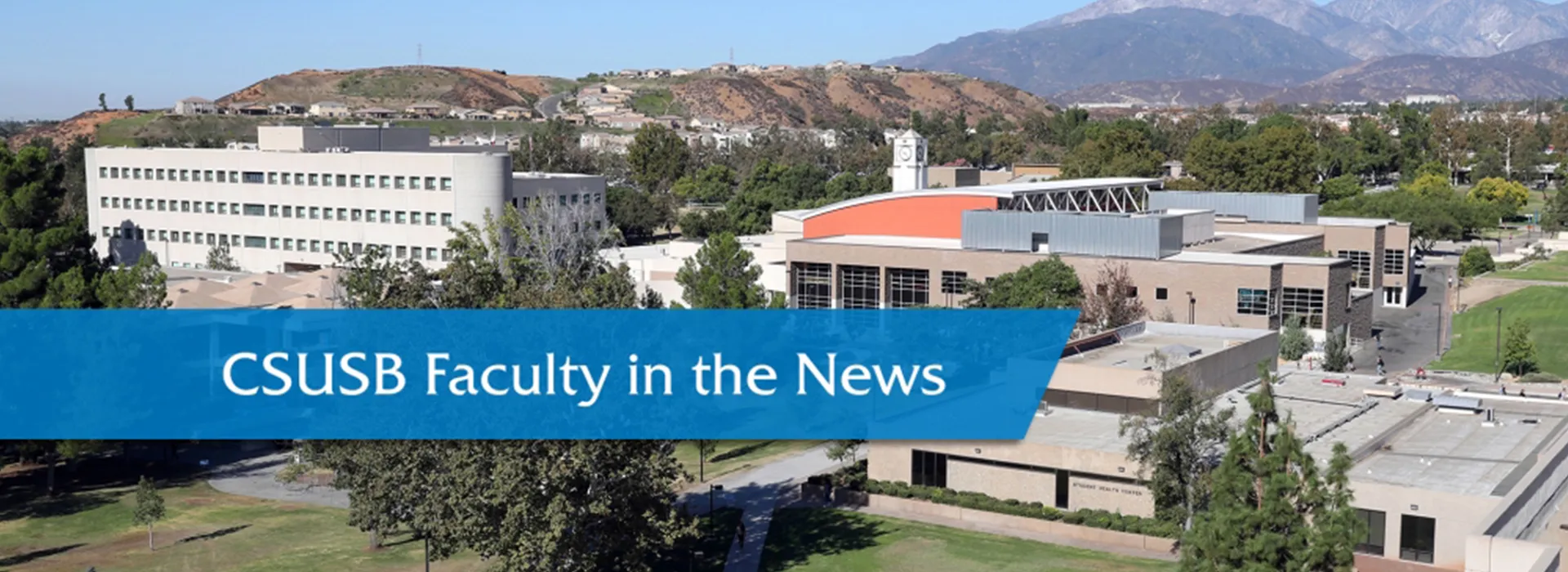NOTE: Faculty, if you are interviewed and quoted by news media, or if your work has been cited, and you have an online link to the article or video, please let us know. Contact us at news@csusb.edu.
European countries should support Iran’s request for emergency loan to fight COVID-19 pandemic, CSUSB professor says
Press TV
April 23, 2020
David Yaghoubian, CSUSB professor of history, was interviewed for a segment to discuss Iranian President Hassan Rouhani’s phone conversation with Russian President Vladimir Putin regarding the continuation of U.S. sanctions against Iran during the COVID-19 pandemic. Rouhani was especially critical of the U.S. pressuring the International Monetary Fund to deny emergency loans to Iran.
Yaghoubian said it was up to the international community, particularly Europe and specifically France, Germany and the United Kingdom – signatories to the multi-national Joint Comprehensive Plan of Action that regulates Iran’s nuclear program – “to step up, to, at the very least … to assure that the IMF follows its own rules and procedures and is able to provide Iran with the $5 billion loan that it is seeking.” If the funds are blocked by the U.S., a majority shareholder in the IMF, he said there are other mechanisms available to the IMF to assist Iran.
The U.S. imposed sanctions on Iran after it pulled out of the JCPOA in May 2018. The Trump administration said it wanted to negotiate a stronger agreement, and has been using the sanctions in its effort to bring Iran to the negotiating table.
See the segment at “Iran president: U.S. pressure amid pandemic cruel and illegal.”
CSUSB professor discusses UN report listing companies doing business in Israeli settlements
Press TV
April 11, 2020
Ahlam Muhtaseb, CSUSB professor of communication studies and director of the university’s Center for Islamic and Middle Eastern Studies, was interviewed for the program “Palestine Files,” where she discussed the United Nations report blacklisting more than 100 Israeli and international firms that do business in the occupied West Bank.
Muhtaseb, who co-directed the award-winning documentary “1948: Creation and Catastrophe,” appears at about 8 minutes and 30 seconds into the program. She said that the UN report came after four years, which she said was too long, and that the Office of the United Nations High Commissioner for Human Rights faced repeated lobbying pressure from the United States and Israel.
The news program reported that the UN’s report was a significant move, but the international body stopped short of sanctioning these companies. With no clear punishment and just a “symbolic” blacklist, Palestinians expect these companies to continue their illegal practices under the protection of the Israeli regime, the news program reported.
See the complete episode at “UN blacklists over 100 Israeli & intl. firms over exploiting Palestinian resources.”
These news clips and others may be viewed at “In the Headlines” at inside.csusb.edu.
